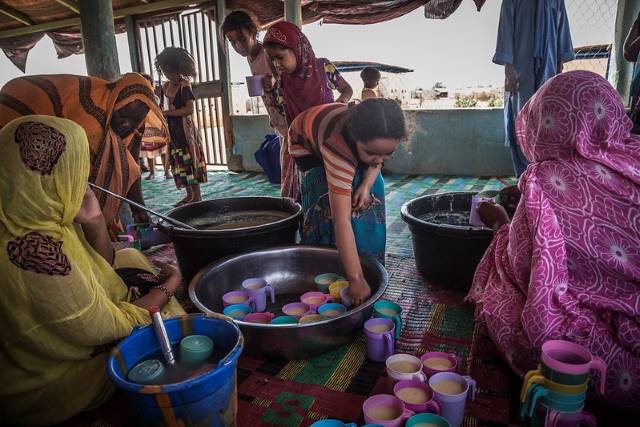How COVID-19 Affects Refugee Camps in Mauritania
 COVID-19 has had a significant impact on countries all over the world but developing countries have been most severely impacted. Many developing nations are under strain due to a lack of resources and inadequate infrastructure. Developing countries like Mauritania also house significantly vulnerable groups such as refugees. COVID-19 affects refugee camps in Mauritania especially hard.
COVID-19 has had a significant impact on countries all over the world but developing countries have been most severely impacted. Many developing nations are under strain due to a lack of resources and inadequate infrastructure. Developing countries like Mauritania also house significantly vulnerable groups such as refugees. COVID-19 affects refugee camps in Mauritania especially hard.
The Mbera Camp
The Mbera camp is located 40km from Mauritania’s southern border shared with Mali. The Mbera camp first formed to house Malian refugees who fled the conflict in Mali. The camp is home to more than 50,000 Malian refugees. It is now one of the only camps in Mauritania that offers shelter and education for its refugees. Roughly 58% of the refugees in the Mbera camp are children.
COVID-19 affects refugee camps particularly harshly. Refugee camps are vulnerable to COVID-19 because they are overcrowded, densely populated and lack sufficient access to water, sanitation and health services. For more than 50,000 people in the Mbera camp, there is only one health center and four health posts. When 94% of the population rely on these facilities as their primary source of healthcare, it becomes overburdened when multiple people fall ill at once. This means at least 20% of households may be unable to access treatment because the health centers lack capacity to accommodate everyone or because the centers are a long distance away.
An Impacted Economy
In March 2020, the U.N. Refugee Agency (UNHCR) established a crisis committee in order to manage communications and mobilization simultaneously. The committee ensures that refugees have access to as much information as possible regarding COVID-19 risks in the community. A survey evaluated how COVID-19 affects refugees in the camp. It showed that 100% of those surveyed knew about COVID-19 and its risks. Additionally, 62% could not afford the hygiene items necessary for preventative measures. As with many countries, the economic impact in Mauritania has been harsh. Roughly 75% of respondents reported that COVID-19 negatively impacted their livelihoods.
To address these issues, the UNHCR introduced a Cash for Social Protection plan that benefited more than 1,000 households within the Mbera camp.
The UNHCR’s Plan
Since the start of COVID-19, the UNHCR has supported the Mauritanian Government’s COVID-19 Response Plan. The Government’s response includes refugees and national health structures treat COVID-19 refugee patients. The NGO, Alima, along with the UNHCR and the WHO, trained 32 young volunteers to participate in the COVID-19 community surveillance system. On 15 September 2020, the UNHCR promised to provide free primary healthcare services in the Mbera camp for all refugees until the close of the year.
Part of the UNHCR’s comprehensive COVID-19 response includes 46 quarantine units at the borders as well as four isolation points. Ongoing awareness initiatives in the Mbera camp ensure that refugees are educated about COVID-19. The UNHCR has also distributed protective personal equipment to the four health structures of Mbera camp and the border points. The organization has also established a contact tracing system and a COVID-19 data collection system. Furthermore, the UNHCR has provided the necessary medication, equipment and medical transportation to support the COVID-19 response in Mbera camp.
By supporting an effective COVID-19 response in Mauritania, and in Mbera camp specifically, the UNHCR ensures that vulnerable populations are not overlooked during a global health pandemic. In order for the global COVID-19 response to be successful, minority and marginalized groups must be prioritized.
– Seren Dere
Photo: Flickr
